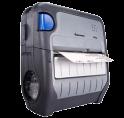Realizing your business may have a need for a new product can be stressful. For one, there is the potential cost associated with the item. For small organizations, the budget is often stretched near its capacity already. Even amidst the budgetary restrictions associated with starting and growing a small business, or any sized business, for that matter, there comes a point when expenditures must be made. To cope with an unexpected potential expenditure, business owners may want to focus on shifting their mindset.
If the expenditure is for a product that will help their business operate more efficiently, it really should be treated as more of an investment than expenditure. Products that can make businesses and employees do their jobs faster or focus more on important tasks are really opportunities. Just think of all the expenditures that won’t happen as a result of the new product. Certainly, an expenditure on office supplies like paper and folders should not be considered in the same category as an unexpected plumbing emergency (although, as business owners realize, they both count as expenditures on the balance sheet).
An even more drastically different type of expenditure is one that can streamline your business process. These are the aforementioned products that are investments. One such item for many businesses is a barcode printer. If your business frequently uses barcodes, it may be efficient to have your own barcode printer. Many barcode equipment companies offer barcode printer rentals if you think it would be beneficial to use one on a trial basis and see its value firsthand. Once you make the decision to investigate a barcode printer, you quickly realize there are several types to choose from, mostly varying by size. Here are a few examples of barcode printers.

Industrial Barcode Printers
Industrial printers are the largest, most expensive and among the most advanced barcode label printers on the market. Companies who need to print out large quantities of shipping labels may benefit from purchasing or renting an industrial-sized barcode label printer. Specific advanced applications, like printing long-lasting inventory labels are also a function of these advanced devices. They are designed for warehouses and other manufacturing settings, and have a durability and capability to match.
Desktop Barcode Printers
A step below the industrial printers in size and capability are Desktop Barcode Label Printers. This is an ideal size for retailers who need to print barcodes, as well as small businesses with online stores or warehouses that need to print shipping labels or inventory barcodes at lower volumes, perhaps only on a seasonal basis. Seasonal small businesses may particularly benefit from purchasing or renting a desktop barcode printer.
Mobile Barcode Printers
As the name indicates, these barcode printers are designed to function anywhere and to connect with computers and smartphones via Wi-Fi, Bluetooth or USB. Anyone who needs to print barcode labels and needs the flexibility that this connectivity affords should investigate mobile barcode printers.
Wristband Barcode Printers
Though it might seem like a small niche, there is enough demand for barcoded wristbands that there exists a class of printers specifically for their output. Hospitals and theme parks are two certainly contrasting examples of situations where barcoded wristbands might be necessary, but businesses holding events have also found them useful. Many businesses use barcodes; and if you use enough of them, you just may need to start printing your own.


